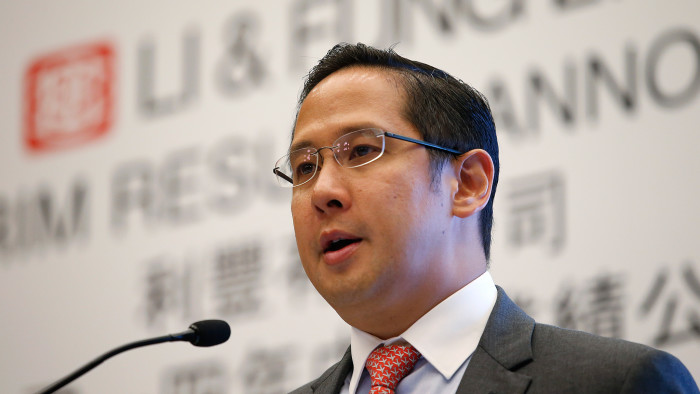Li & Fung: Family ties prove indispensable

Simply sign up to the Retail & Consumer industry myFT Digest -- delivered directly to your inbox.
Over the past 109 turbulent years of Chinese history, the leaders of Hong Kong sourcing and trading company Li & Fung have had front-row seats for dramatic twists and turns of fortune.
Like many Chinese family-run businesses, the venture has found ways to reinvent itself through war, the rise to power of the Communist party, global recessions and capital market routs.
But, while Asia is at peace and thriving, the company — which helps global retailers such as Walmart and Marks and Spencer source clothing, homewares and other products — is facing the toughest challenge of its modern era.
After 20 years of rapid growth as China emerged as the world’s factory floor, the company came up against what Spencer Fung, chief executive, calls “almost a perfect storm” from 2010 onwards.
“The global financial crisis was the first hit,” says Mr Fung, who is the great-grandson of the company’s co-founder and took the helm of Li & Fung in March last year.
The worldwide demand shock came just as factory wages in China, where Li & Fung procures most of its goods, were rising rapidly and the company was struggling to digest the latest of 100 acquisitions during the previous two decades.
Since then, the dizzying growth of ecommerce and the expansion of low-cost, fast fashion brands such as H&M and Zara has shaken up the traditional sourcing business still further.
“Li & Fung is facing terrific challenges,” says Robert Ross, a professor of sociology at Clark University in Massachusetts, who studies global apparel supply chains. “They realised that being the middleman is no longer the best profit point in the industry. But unfortunately they reached this perception at the lip of the great recession.”
As the world’s biggest sourcing company, Li & Fung was hit hard. Profit has dropped by 21 per cent since 2011 to $539m last year, while turnover has stagnated at about $19bn. Shares in the company which is listed in Hong Kong have lost more than 70 per cent of their value since peaking in 2011, giving the business a market capitalisation of $6.2bn.

But Mr Fung, whose family still owns about 30 per cent of the company, believes that investors will need to show more patience in a venture just midway through a strategic revamp. The company has already spun off its branded goods business, now called Global Brands Group that is listed in Hong Kong with a market capitalisation of about $1.8bn. Li & Fung is continuing to streamline, while expanding into new growth areas such as ecommerce and logistics.
Like other sourcing companies, Li & Fung is increasingly buying goods in markets outside China, such as Vietnam and Bangladesh where factory wages can be 50 per cent lower. Mr Fung says that 70-80 per cent of the company’s durable goods, such as furniture, still come from China, but only 35-40 per cent of its clothing.
At the same time, it is trying to boost its sales into China. While its Asian business is growing, it still only accounts for 12 per cent of sales, compared with 63 per cent in the US and 17 per cent in Europe. Mr Fung insists that the company remains focused on the long term. “Our horizon is 10-20 years,” he says. “We don’t want to do things that are only good for the next quarter, we want to do things that are good for the company.”
Comments